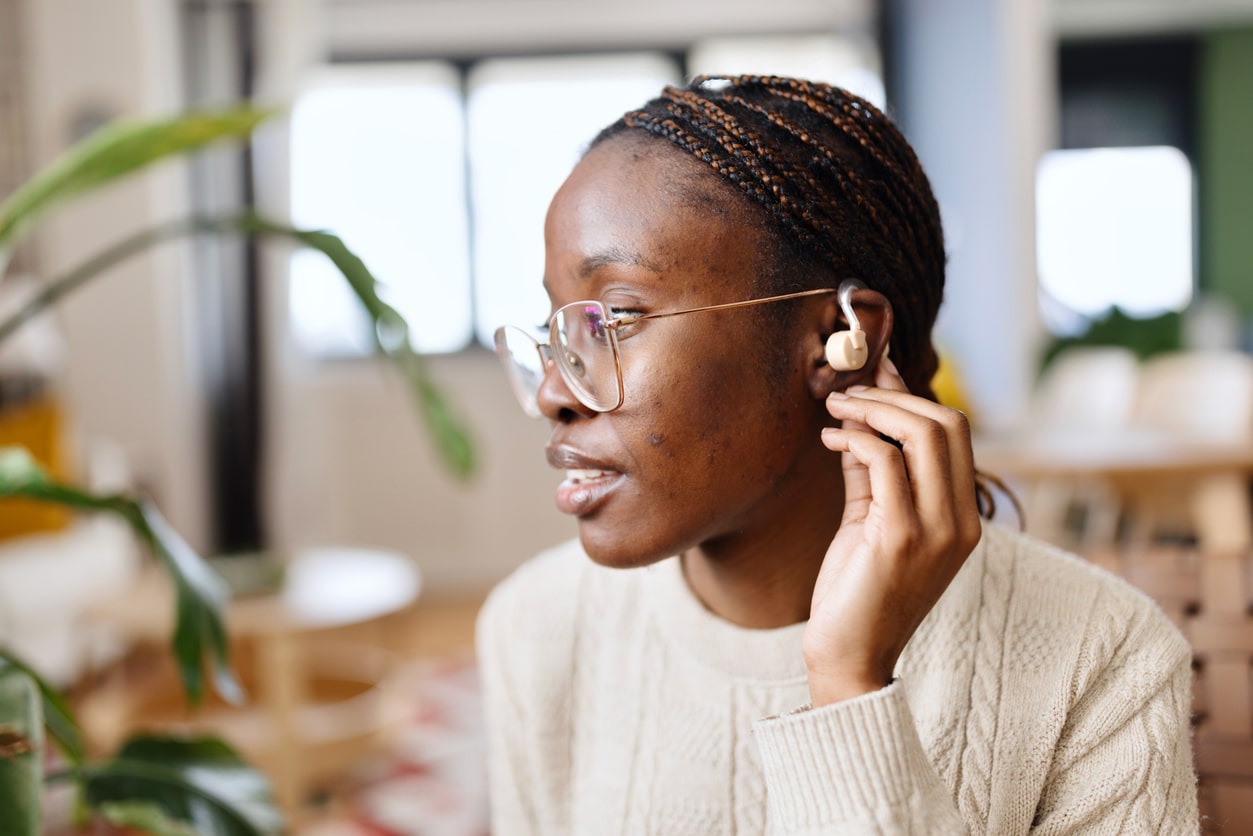Hearing aids are valuable devices for enhancing hearing and improving quality of life. However, it’s crucial to acknowledge the adjustment period they entail, requiring patience and understanding. For the 28.8 million people who could benefit from hearing aids, knowing what lies ahead during this phase can alleviate concerns and facilitate a smoother transition.
Understanding the Adjustment Period

To set realistic expectations, it’s essential to grasp what the adjustment period entails. Here’s what to anticipate during this phase:
- Sensory overload: Initially, you might experience sensory overload as your brain processes sounds it hasn’t heard clearly in a while. Everyday noises, like footsteps or rustling leaves during walks through Memorial Park, may seem amplified, potentially overwhelming your senses. Gradual acclimatization is key. Begin by wearing your hearing aids in quieter settings before gradually introducing them to louder environments.
- Noticing new sounds: During the adjustment period, you may notice new sounds previously masked by hearing loss. Embrace these auditory discoveries as they enrich your experience. However, feeling overwhelmed initially is normal, so take breaks when needed and gradually incorporate these sounds into your routine.
- Getting used to the hearing aids: Initially, wearing hearing aids may cause physical discomfort, such as irritation or soreness in your ears, as they adjust to the devices. Ensuring proper fit and adjustment can help minimize discomfort.
Tips for Managing the Adjustment Period
To ease into the adjustment period, consider the following tips:
- Practice patience: Be patient as your brain learns to interpret and prioritize different sounds. Communicate any concerns with your hearing specialist and allow them to guide you through the process.
- Set realistic expectations: Understand that adapting to hearing aids is a gradual process, varying from person to person. Celebrate small victories and maintain a positive mindset focused on long-term benefits.
- Gradually increase wear time: Start by wearing your hearing aids for short intervals and gradually increase the duration as you become more comfortable. This helps you adapt physically and mentally.
- Seek support: Reach out to your hearing specialist for guidance. Connecting with support groups or individuals who’ve undergone a similar experience can offer valuable insights and encouragement.
The adjustment period for hearing aids may pose challenges, but it’s a temporary phase leading to enhanced auditory health and overall well-being. By understanding what to expect and implementing coping strategies, you can navigate this period confidently and embrace the newfound joys of hearing.
To learn more or schedule a hearing evaluation, contact Amarillo Hearing Clinic to book an appointment.
